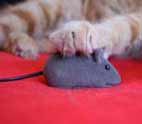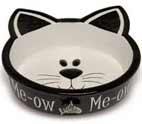Cats And the Risk Of Antifreeze Poisoning
by Matt
(London UK)
Here in the UK it is mid-winter and freezing cold at the moment. Everybody is wrapped up warm and the local councils are busy spreading salt grit on the roads to help thaw the ice and make driving safer.
The early mornings are filled with that familiar winter soundtrack of cars trying to be started while their batteries slowly start to dwindle and die...
And that got me thinking about an important safety concern for our cats!
Antifreeze!
Did you know that antifreeze is poisonous to cats? Not just in the sense that it will make them feel a bit sick – but in the sense that it can KILL them – even in small quantities!
Antifreeze, which contains ethylene glycol, leads to kidney failure and a painful death. If an animal has ingested any, then medical treatment has to be given extremely quickly if they have any chance of surviving.
Now – the fact that the ice cold weather brought this to my mind, does not mean it is an issue just for those winter months when we are all busy topping up our car engines with the stuff. It is an issue all year round.
Because what do we all do with the antifreeze we have left over? We store it in our sheds and garages – usually only to forget all about it!
And the other big problem with antifreeze is that cats seem to love the taste of it!
Combine that with our kitties’ natural sense of curiosity (and their love of getting into sheds and garages where they shouldn’t be) and we have a lethal cocktail on our hands: A highly poisonous substance that kitties love the taste of; left in places they like to climb into; and often kept unchecked in ageing and possibly leaking bottles!
What are the signs of Antifreeze Poisoning?
If you suspect that your cat might have drunk some antifreeze then you must get them to a vet immediately!
The possible signs and symptoms of poisoning from antifreeze include:
• Vomiting
• Increased tiredness and sleepiness
• Loss of coordination
• Fits and seizures
• Difficulty breathing
• Increased urination
• Increased thirst
Help Prevent Antifreeze Poisoning
So please, if you have any antifreeze or are thinking of buying some, please make sure that you dispose of any surplus properly.
If you do need to store any, make sure that it is kept in a secure place where cats can’t get at it and that the container is in a good watertight condition.
If you notice any spillages, then clean it up immediately and make sure that pets cannot access the area until it is all removed.
Check your car regularly to make sure it is not leaking water. Cats will drink from the dripping leak or resulting puddle and can be poisoned from the antifreeze in the water.
Top of this cats and the risk of antifreeze poisoning page





